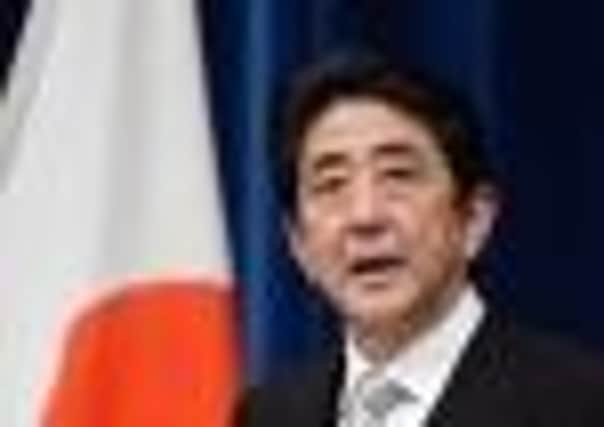Japan’s PM set to rewrite apology for war record


Mr Abe, a hawkish conservative who is known to want to recast Japan’s position on its wartime militarism in less apologetic tones, led his party to a landslide victory in a 16 December election.
He outlined his intention to restate Japan’s position in an interview with the conservative Sankei newspaper yesterday, but he did not give details.
Advertisement
Hide AdAdvertisement
Hide AdAny hint that Japan is back-tracking from the 1995 apology, issued by then prime minister Tomic Murayama, is likely to outrage neighbours, particularly China and North and South Korea, which endured years of brutal Japanese rule.
“The Murayama statement was a statement issued by Socialist Party prime minister Tomiichi Murayama,” Mr Abe was quoted as saying in the interview. I want to issue a forward-looking statement that is appropriate for the 21st century,” he said.
Mr Abe said he would consult experts about the details and the timing of statement.
He has also said he wants to loosen the constraints of Japan’s post-war pacifist constitution, which was drawn up by the US.
Mr Abe hails from a wealthy political family that includes a grandfather, Nobusuke Kishi, who was a wartime cabinet minister who was imprisoned but never tried as a war criminal after the war. He went on to become prime minister from 1957 to 1960.
First elected to parliament in 1993 after the death of his father, a former foreign minister, Mr Abe rose to national fame by adopting a tough stance toward North Korea in a dispute over Japanese citizens kidnapped by North Korea decades ago.
More recently, he has promised not to yield in a territorial row with China over tiny islands in the East China Sea – known as the Senkaku in Japan and the Diaoyu in China – and boost defence spending to counter China’s growing influence.
During a first stint as prime minister, which began in September 2006 and lasted a year, Mr Abe pushed through a parliamentary revision of an education law to “restore patriotism” in school curriculums. He also yesterday voiced his intention to push forward with Japan’s nuclear programme, building new reactors, despite public opinion turning against using atomic energy following the Fukushima disaster of March 2011.
Advertisement
Hide AdAdvertisement
Hide Ad“New reactors will be totally different from the ones built 40 years ago – those at the Fukushima Daiichi plant that caused the crisis,” Mr Abe said in a television interview.
“We will be building them while earning understanding of the public as to how different they are,” he said.